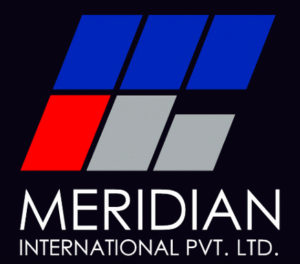In the rapidly evolving digital world, web development is the backbone of online presence and digital transformation. From startups to enterprises, the need for fast, scalable, and responsive websites or applications is universal. But with a multitude of tools and technologies available, choosing the right web development framework is crucial for success. At Connect Devs, we specialize in helping businesses navigate this complexity, delivering high-performance digital experiences that are future-proof and user-focused.
This post explores the modern landscape of web development, the frameworks shaping it, and how to select the right stack to meet your project’s goals.
What is Web Development?
Web development refers to the process of creating, building, and maintaining websites or web applications. It encompasses:
-
Frontend development (client-side): What users interact with — layout, design, and behavior.
-
Backend development (server-side): Behind-the-scenes logic, database management, server configuration, and APIs.
-
Full-stack development: A blend of frontend and backend expertise.
The power of modern web development lies in its frameworks — structured tools that provide pre-written code, components, and libraries to accelerate and standardize development.
Why Frameworks Matter in Web Development
Frameworks are essential because they offer:
-
Code efficiency: Speeds up development by reducing the need to write repetitive code.
-
Security: Frameworks are maintained by active communities, often patching vulnerabilities faster.
-
Scalability: Structured code makes scaling applications easier.
-
Cross-platform compatibility: Many frameworks support responsive and mobile-friendly design out-of-the-box.
-
Community support: Troubleshooting and innovation benefit from widespread usage.
At Connect Devs, we leverage frameworks not just to build, but to future-proof solutions that scale with your business needs.
Top Web Development Frameworks in 2025
Here’s a breakdown of the most popular and effective web development frameworks you should consider:
Frontend Frameworks
-
React.js
-
Created by Facebook, React is component-based, ideal for SPAs (Single Page Applications).
-
Offers high performance and reusable components.
-
-
Vue.js
-
Lightweight, beginner-friendly, and highly customizable.
-
Great for startups and MVPs.
-
-
Angular
-
Developed by Google, Angular is a comprehensive framework with two-way data binding.
-
Suited for enterprise-grade apps with complex requirements.
-
Backend Frameworks
-
Node.js + Express
-
JavaScript runtime with Express.js as the backend framework.
-
Perfect for real-time applications like chat apps and live dashboards.
-
-
Django (Python)
-
High-level, secure, and scalable.
-
Great for applications that require quick development and robust security.
-
-
Ruby on Rails
-
Convention over configuration approach.
-
Ideal for rapid prototyping and agile development cycles.
-
-
Laravel (PHP)
-
Elegant syntax and active ecosystem.
-
Best suited for web apps with content management or custom APIs.
-
Choosing the Right Framework for Your Project
Not all frameworks are created equal. Your choice should be guided by:
-
Project type & complexity: For example, React or Vue might be ideal for a dynamic UI, while Django works best for data-driven applications.
-
Team expertise: Lean on what your developers know best unless you’re ready to invest in training.
-
Scalability requirements: Choose frameworks that support modular architecture.
-
Community & ecosystem: The larger the community, the faster you can troubleshoot and evolve.
At Connect Devs, we conduct thorough tech assessments to align framework choices with your business strategy and user goals.
Trends Shaping Web Development in 2025
-
Serverless Architecture
Offload infrastructure management to providers like AWS Lambda, simplifying deployment. -
JAMstack & Headless CMS
Static site generation combined with dynamic content sources — fast and flexible. -
AI & Personalization Integration
Leveraging machine learning for real-time customization and user insights. -
Progressive Web Apps (PWAs)
Bridging mobile and web with offline capabilities, push notifications, and app-like experiences. -
WebAssembly (Wasm)
Boosts performance for computational-heavy tasks by running code at near-native speed in browsers.
Final Thoughts
Web development is no longer just about writing code. It’s about crafting digital experiences that are fast, secure, and scalable. Frameworks empower developers to build with efficiency, consistency, and performance in mind. But selecting the right tools requires insight, strategy, and hands-on expertise.
At Connect Devs, our team of top software engineers helps companies architect intelligent solutions, transform user experiences, and thrive in the digital age. Whether you’re building a high-traffic web platform or a mobile-responsive app, we’re here to connect your vision with the right technology.
Ready to elevate your digital presence?
Partner with Connect Devs — where innovation meets execution.
- Mastering Web Development & Frameworks
- In the rapidly evolving digital world, web development is the backbone of online presence and digital transformation. From startups to enterprises, the need for fast, scalable, and responsive websites or applications is universal.
- Engineers
Related posts:
 Engineering Design Assignment Help: Making Complex Projects Easier for Students
Engineering Design Assignment Help: Making Complex Projects Easier for Students
 Struggling with Computer and Networking Assignments? Here’s How to Get Expert Help
Struggling with Computer and Networking Assignments? Here’s How to Get Expert Help
 Get Instant Last Minute Assignment Help in Australia by India Assignment Help
Get Instant Last Minute Assignment Help in Australia by India Assignment Help
 AI and Job Security: Discover Which Tech Roles Are Truly Safe in 2025
AI and Job Security: Discover Which Tech Roles Are Truly Safe in 2025
 World War 3 Predictions Through Astrology: What the Stars Foretell
World War 3 Predictions Through Astrology: What the Stars Foretell
 How to Get Started with Web Development as a Beginner: Complete Guide
How to Get Started with Web Development as a Beginner: Complete Guide
 CUET PG 2026: Your Complete Guide to the Central University Entrance Test for Postgraduate Programs
CUET PG 2026: Your Complete Guide to the Central University Entrance Test for Postgraduate Programs
 Master the Markets with Expert-Led Stock Market Classes Only at ICFM in Delhi and Online
Master the Markets with Expert-Led Stock Market Classes Only at ICFM in Delhi and Online








